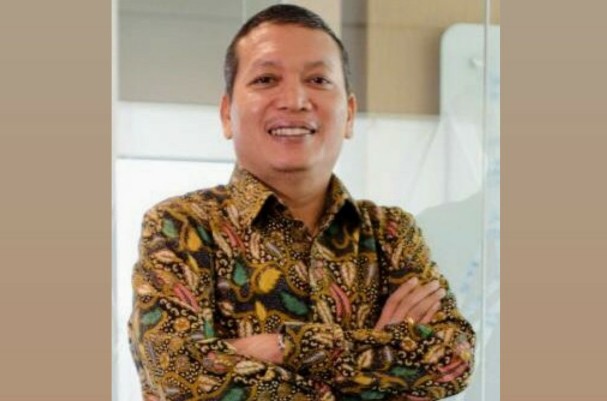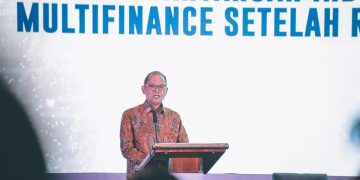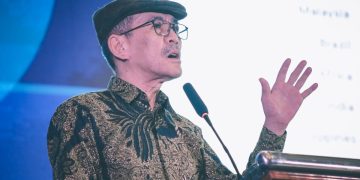By Eko B. Supriyanto, Chief Editor of Infobank
Jakarta – CHANGE 180 degrees. Indonesia’s financial sector institutions will meet a turning point. These important points are contained in the draft Law on the Development and Strengthening of the Financial Sector (PP2SK) which was submitted by the House of Representatives to the government. However, the draft of the Financial Sector Development and Strengthening bill can still change if the government revises it, to “compromise” with the House of Representatives which initiated this “universe” sweeping bill.
The articles that say that politicians who are party members may sit as Governors and Deputy Governors of Bank Indonesia (BI) can be seen from the abolition of Article 47 paragraph C; Members of the Board of Governors, either alone or jointly, are prohibited from becoming administrators and/or members of political parties. This article consists of only two paragraphs. Since this “batman” trap article is not regulated means it is allowed.
So, because it is not prohibited and is explicitly included in the articles, it translates that anyone will be allowed to become a member of the Bank Indonesia Board of Governors, including politicians who are party members.
This article on the requirements to become Bank Indonesia bosses also applies to the bosses of the Financial Services Authority (OJK) and the Deposit Insurance Corporation (LPS). There is a selection team formed by the Republic of Indonesia House of Representatives. The difference is, so far, the Financial Services Authority selection team is chosen by the government, chaired by the Minister of Finance, while the Deposit Insurance Corporation is more of a government domain, in this case the Minister of Finance. Not through the House of Representatives as in the election of the Bank Indonesia Board of Governors and Members of the Financial Services Authority Board of Commissioners.
In short, the selection team for the Financial Services Authority and the Deposit Insurance Corporation Commissioners was formed and initiated by the House of Representatives in charge of banking finance. The composition of the selection team is still the same, namely the Ministry of Finance, Bank Indonesia, and people’s representatives. Through this door, politicians can enter the Deposit Insurance Corporation, the Financial Services Authority, and of course become Bank Indonesia bosses like when politicians enter the Supreme Audit Agency.
Like Bank Indonesia, later there will also be a supervisory agency, such as the Bank Indonesia Supervision Agency. The draft of the Development and Strengthening of the Financial Sector bill orders the establishment of a supervisory agency for the Financial Services Authority and the Deposit Insurance Corporation selected by the House of Representatives in charge of the banking financial sector – currently Commission XI of the Indonesian House of Representatives.
Back to the institutional articles of the Development and Strengthening of the Financial Sector Bill, especially regarding who can and cannot be the boss of Bank Indonesia, Financial Services Authority, and Deposit Insurance Corporation. This drastic or fundamental change in the Development and Strengthening of the Financial Sector Bill, according to the whispers of politicians from Senayan, is due to the experience of 2020, because they both hold independent positions, both Bank Indonesia and the Financial Services Authority and the Deposit Insurance Corporation, when a bank is sick, they cannot help. In fact, at that time a Government Regulation in Lieu of Law would be issued regarding the Financial Services Authority and Bank Indonesia.
The articles that allow anyone, including politicians to sit on the seats of the Bank Indonesia Governors’ Board of Governors, Financial Services Authority Board of Commissioners, and Deposit Insurance Corporation, of course need to be revised by the government. Imagine if a Bank Indonesia governor was a party cadre, plus he was also preparing for the presidential election.
Is there a guarantee that they will not “print money” by looking for many reasons which in the end serve as a way to win the presidential election by producing money. Including in the Financial Services Authority and the Deposit Insurance Corporation, can this guarantee that if a bank is sick, it will be left alive because the owner is a party supporter?
And, there is also no guarantee that the top officials from the non-party state institutions will not do this. However, at least they will not print money for political purposes. This is because the experience of the Old Order era, which was ambitious by building a lighthouse project, was fueled by inflation because the Bank Indonesia Governor was close to the president.
Also, during the New Order there was a presidential order to disburse Bank Indonesia Liquidity Assistance and protect banks that were actually sick, which has been a disaster to this day. The politicization of the Century Bank case traumatized the Deposit Insurance Corporation, Bank Indonesia and the Financial Services Authority to lock each other and protect themselves.
The pattern of election conducted by Bank Indonesia can be said to be the best, both in terms of the origin of the candidates and the pattern of nomination. It’s just that when there is only one candidate for deputy in the Bank Indonesia deputy election, it is a form of government arrogance that offends the House of Representatives. “That’s the House of Representatives is just a stamp provider,” said the words that could be heard during the discussion about at least two of Bank Indonesia deputy candidates.
It would be better if article 47 paragraph C was revived, and of course the articles of the Financial Services Authority and the Deposit Insurance Corporation that did not include party members were also revived.
“If a business/job is handed over to someone who is not an expert, then wait for the destruction.” Accordingly, trust should not be wasted.






